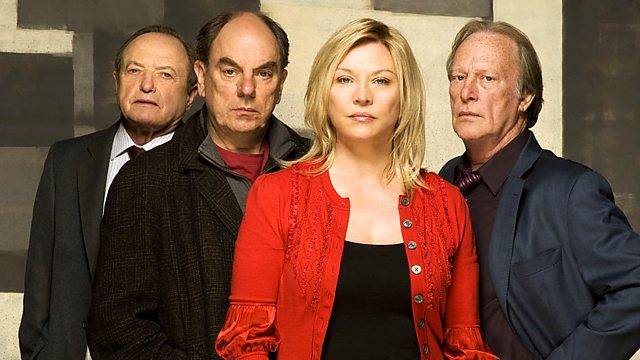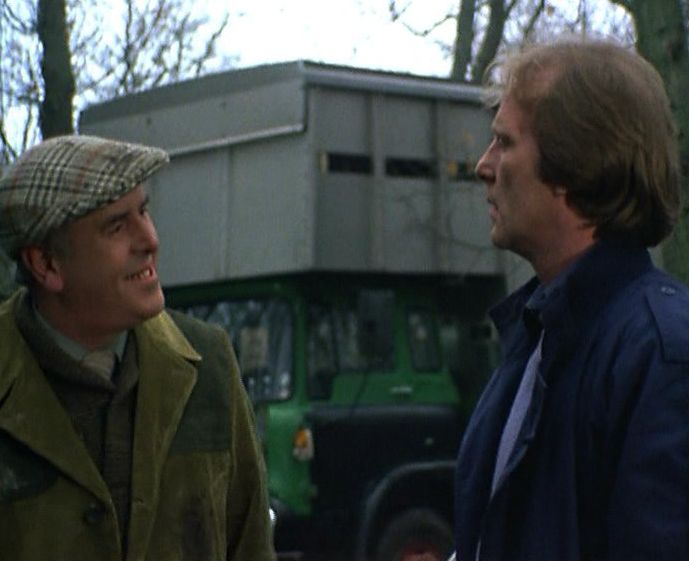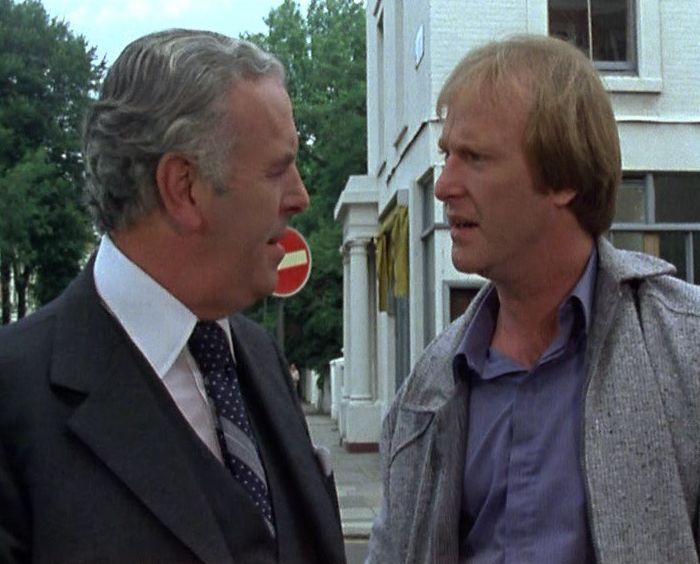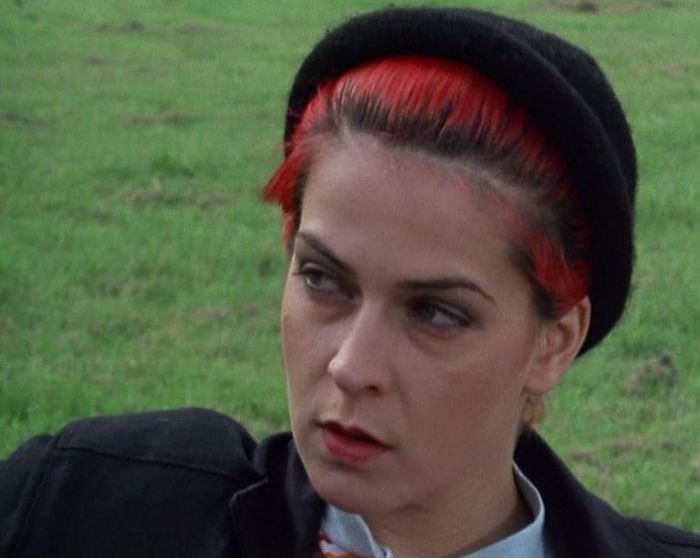New Tricks clocked up an impressive total of 107 episodes between its pilot in 2003 and the finale in 2015. Like many popular series it went on far too long (each time one of the original cast left, the show lost a certain something) but the first half a dozen or so series remain very watchable.
For the dedicated follower of archive television, the appeal of New Tricks probably has a lot to do with the fact that the original cast (Alun Armstrong, James Bolam, Amanda Redman, Dennis Waterman) were very familiar from numerous sixties/seventies/eighties series. The same can be said of the guest casts – they’re always full of naggingly familiar faces who send you rushing off to IMDb to look them up.
The 2003 pilot is a good example – there’s the likes of Jon Finch as Roddy Wringer (a career criminal with a thin veneer of charm hiding an ugly underneath) and Michael Culver (as Ian Lovett, a retired detective who gets on the wrong side of Jack Halford).
Indeed, the scene where Halford (Bolam) casually whacks Lovett in the chest with a golf club is one of the episode’s most memorable moments. It’s an early sign that the affable Halford has a core of pure steel. Although this moment leaves you wondering how often he did that sort of thing during his police days …
Gerry Standing (Waterman) and Brian Lane (Armstrong) are also given a number of scenes which quickly delineate their characters. Waterman’s playing very much to type – Gerry’s an unreconstructed alpha male who enjoys nothing more than a drink, a smoke and some female company. Out of the three ex-detectives recruited as civilian investigators by Detective Superintendent Sandra Pullman (Redman) Gerry seems to be the one with the fewest hangups.
And then on the other end of the scale you have Brian. An obsessive compulsive, he’s blessed with a photographic memory and cursed with an inability to let go of the past. Convinced that he was kicked out of the force via a shadowy conspiracy, the pilot teases the notion that Brian’s fight for the truth will become a running theme.
Although this sort of continuing story beat is something that modern series do quite often, it’s worth remembering that the likes of The Chinese Detective also employed it. So there’s nothing really new under the sun ….
Much of the humour in this first episode comes from the clash between these three old dogs and their attempts to navigate their way through a modern police force that’s unrecognisable in some ways from the one they left behind. Part of Pulman’s job is to act as a buffer between the senior management (who exist on a diet of PR speak and little else) and her new recruits.
And whilst she might display some initial despair at their unconventional ways, it’s easy to guess that before too long she’ll have embraced them all fully (even the cheerfully sexist Gerry). Once they’ve bonded together into a somewhat dysfunctional unit, then the serious business of a tracking down a murderer from twenty years ago can begin.
Although each case is always at the heart of the episode, during the early series there was also plenty of time to explore how each of the four central characters ticked. It was when New Tricks began to concentrate more on the crime of the week and less on the regulars that the series became a little less interesting.
But for now, I’m looking forward to becoming reacquainted with the early episodes again. “It’s all right, it’s okay ….”





















